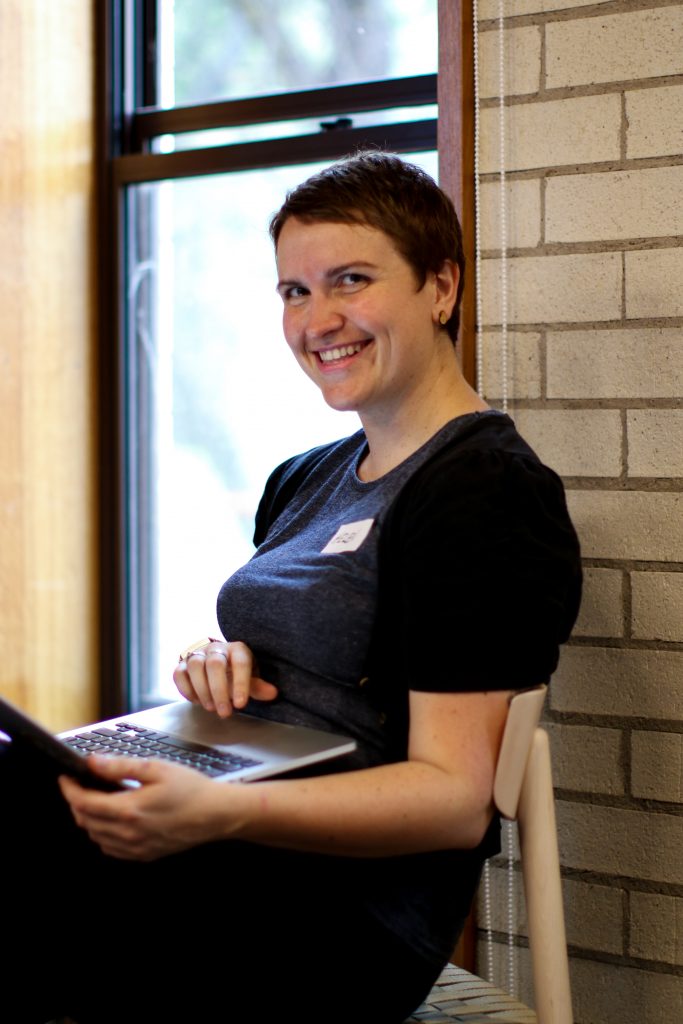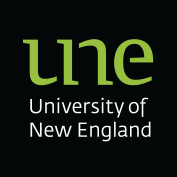This post is part of our series about the individual experience of studying with UNE Business School – we’ll be talking to current students, graduates and alumni over the coming months. If you have a story to share, or know someone who does, let us know via email.
Helen Taylor
Master of Arts Management, UNE July 2013 – June 2017 (Graduating October 2017)
For me, return on investment in a Masters with UNE started soon after completing my first units. Studying communication in the context of the Writing for Work unit with the School of Arts, as well as units like Executive Leadership with UNE Business School’s Dr Peter McClenaghan and Processes of Management with Dr Lou Conway put me in the right spot to begin to theorise prior years of work in management and Human Resources roles.
I now work with UNE Business School in communication, which makes me responsible for our communication footprint both internally and externally. I work with our teachers and researchers as well as our students to share the work we’re doing with each other and the rest of the world. I have blogs, social media and the web at my fingertips to get our messages out there, and there is a lot going on to share!
I studied Creative Writing and Gender studies for a Bachelor of Arts at University of Melbourne, which gave me a set of critical skills as well as growing my passion for communication. I’ve always had an interest in management, although for a long time I didn’t realise that’s what it was. It was the regular catchups with my two brothers where I twigged that all we spoke about was our experiences at work, and patterns we were observing from supervisors and co-workers. A true management and leadership nerd, I still felt uneasy about studying Business units at first, given a lack of undergraduate study in the discipline.
There’s nothing quite like that moment the penny drops, and you see your personal working experiences perfectly fit into a management or leadership model – quickly followed by the excitement in realising that applying this model to said experience is making up the majority of your assessment requirements! I think that’s something I got a lot from, that UNE Business School are doing really well – grounding teaching in the real world experiences.
I really enjoyed being an ‘expert’ of sorts over my own story, and shaping that into my assessment tasks. Having now had the experience of studying in another discipline for my postgraduate qualification, I can very heartily endorse broadening your horizons study-wise. Even if you’re studying a system you don’t agree with, or love – best to understand it first, then you’ll see exactly how you can contribute to changing it!
Being that my Masters was designed to bring together Arts (in my case, communication) and Management, I was able to carve out a topic I loved for my dissertation. I wrote about the construction of new narratives of leadership in online spaces, specifically using social media – I chose a favourite artist and creative leader, Clare Bowditch, as my case study. With my supervisor in Arts, Dr Rose Williamson, I decided to draw together critical leadership studies with feminist rhetorical analysis to argue that social media opened up the potential for new ways of leading that were not necessarily hierarchical. This was interesting to examine in context of creative industries, often giving more scope for different readings of authenticity, empathy and advocacy. I could have written a lot more than 12,000 words!
I was also lucky to do a Special Topic unit, which I turned into a seminar in the UNE SMART Region Incubator, speaking on the importance of failure in startup narratives. My reading for this presentation ultimately lead me to uncover some interesting questions about identities and social impact of startup culture, and having the chance to discuss this after my presentation gave me some real insight into where to take this research next. I can see a lot of potential in the startup industry, but it’s also a complex ecosystem with its own issues. Reading on startup culture has revealed those same age-old issues around diversity, and so I’m now gearing up to start a PhD mid-year looking more closely at diversity in startup culture, and the role of incubators in shaping the startup industry. I could talk about this all day – hopefully, the sign of a good PhD topic.
While I graduate from School of Arts this week, UNE Business School has become the space to ground my love of words, my desire to change the status quo and my slightly nerdy obsession with leading and managing people well. There are some fantastic teachers and researchers here – I can’t recommend interdisciplinary study highly enough. Being a student of two Schools at UNE has turned out to be the right fit for me – it’s all about building the qualification you need to get you where you want to be.




Recent Comments